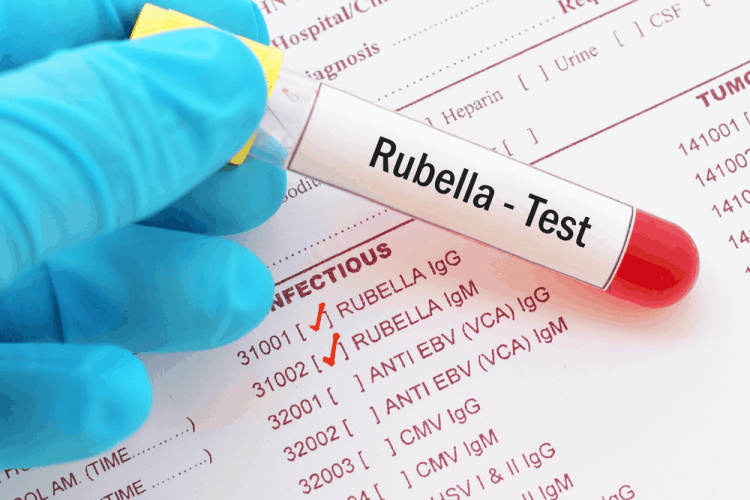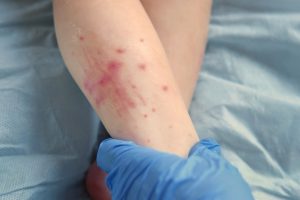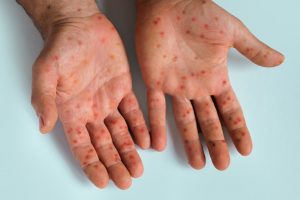Issued by the National Institute for Communicable Diseases based on laboratory testing data
Highlights
- An increase in rubella cases has been noted in the Western Cape Province since the second week of September 2023 (epidemiological week 38).
- Whilst sporadic cases have been noted across the country, a week-on-week increase in laboratory-confirmed cases has been noted in Khayelitsha sub-district of the City of Cape Town since week 36.
- To date, 19 cases have been identified through serological testing, and all are in the 5-9 year age group. Anecdotal reports of increased numbers of clinically suspected cases without laboratory confirmation in the Khayelitsha sub-district of the City of Cape Town have been received by the NICD. Before 2020, seasonal rubella outbreaks occurred from week 35 onward, usually the first week of September.
- Fever rash surveillance usually identified at least 800-1000 cases of rubella annually. During the years 2020-2023, fewer than 50 cases of rubella were identified across the entire country, as the non-pharmaceutical interventions that were implemented for the COVID-19 pandemic interrupted rubella transmission. As the country has not experienced the usual seasonal rubella outbreaks, we are likely to see a large number of cases in 2023.
Overview
Rubella is a mild illness in children and adults but can have severe consequences in pregnant women, particularly those infected in the first trimester of pregnancy. Rubella virus may infect the foetus, leading to congenital rubella syndrome (CRS).
In children and adults, rubella infection presents with rash, low-grade fever (<39°C), nausea, sore throat, mild conjunctivitis (red eyes), headache, cough, runny nose and swollen lymph nodes in the neck. The rash usually starts on the face and neck before spreading to the rest of the body. The rash lasts for about 5 days. Congenital rubella syndrome may lead to foetal death, or congenital anomalies including congenital heart disease, cataracts and deafness.





